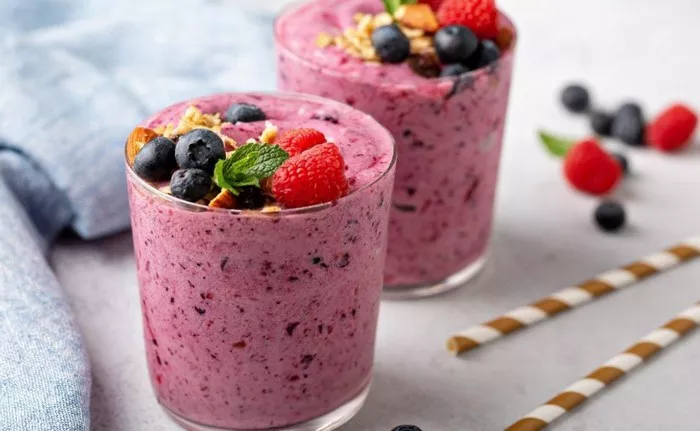A balanced diet is essential for maintaining good health. It provides the body with the nutrients it needs to function properly. But what does a balanced diet really mean? Let’s break it down into simple terms.
Understanding a Balanced Diet
A balanced diet includes a variety of foods. This helps ensure you get all the nutrients your body needs. These nutrients include carbohydrates, proteins, fats, vitamins, and minerals. Eating a range of foods helps to provide energy, support growth, and keep your body working well.
Key Components of a Balanced Diet
1. Carbohydrates
Carbohydrates are one of the main sources of energy for our bodies. They are found in foods like:
- Bread
- Rice
- Pasta
- Potatoes
- Fruits
Carbohydrates can be divided into two types:
Simple Carbohydrates: These are sugars found in fruits, honey, and some processed foods. They provide quick energy but can lead to spikes in blood sugar.
Complex Carbohydrates: These are found in whole grains, legumes, and vegetables. They provide a steady release of energy and are often higher in fiber, which is good for digestion.
2. Proteins
Proteins are important for building and repairing tissues. They are made up of amino acids, which are the building blocks of life. Good sources of protein include:
- Meat
- Fish
- Eggs
- Dairy products
- Beans and legumes
- Nuts and seeds
It is important to include a variety of protein sources in your diet to ensure you get all the essential amino acids.
3. Fats
Fats are another source of energy. They help absorb certain vitamins and are important for brain health. However, not all fats are created equal. There are three main types of fats:
Saturated Fats: Found in animal products like butter and cheese. They should be eaten in moderation.
Unsaturated Fats: These are healthier fats found in olive oil, avocados, and fatty fish. They can help lower cholesterol levels.
Trans Fats: Often found in processed foods. These should be avoided as they can increase the risk of heart disease.
4. Vitamins and Minerals
Vitamins and minerals are essential for various bodily functions. They help with:
- Immune system function
- Bone health
- Energy production
- Blood clotting
Different vitamins and minerals are found in various foods. For example:
Vitamin C: Found in citrus fruits, strawberries, and bell peppers. It helps boost the immune system.
Calcium: Found in dairy products, leafy greens, and fortified foods. It is important for strong bones.
Iron: Found in red meat, beans, and fortified cereals. It is crucial for making red blood cells.
5. Fiber
Fiber is a type of carbohydrate that the body cannot digest. It is important for digestive health. High-fiber foods include:
- Whole grains
- Fruits
- Vegetables
- Legumes
Fiber helps keep you full and supports regular bowel movements. It can also help lower cholesterol levels and regulate blood sugar.
6. Water
Water is often overlooked but is essential for a balanced diet. It helps maintain body temperature, lubricate joints, and transport nutrients. Aim to drink plenty of water throughout the day.
Portion Control
A balanced diet is not just about what you eat, but also how much you eat. Portion control is important to prevent overeating. Here are some tips for controlling portions:
Use Smaller Plates: This can help trick your brain into thinking you’re eating more.
Listen to Your Body: Eat when you’re hungry and stop when you’re full.
Plan Meals: Preparing meals in advance can help you manage portions better.
The Importance of Variety
Eating a variety of foods ensures you get all the nutrients your body needs. No single food can provide everything, so mix different foods in your meals. This can also make eating more enjoyable.
Examples of Balanced Meals
Breakfast
A balanced breakfast might include:
- Whole grain toast with avocado (carbohydrates and healthy fats)
- Scrambled eggs (protein)
- A piece of fruit, like a banana (vitamins and minerals)
Lunch
For lunch, you could have:
- Grilled chicken salad with mixed greens (protein and vegetables)
- Quinoa or brown rice (complex carbohydrates)
- Olive oil and lemon dressing (healthy fats)
Dinner
A balanced dinner might consist of:
- Baked salmon (protein and healthy fats)
- Steamed broccoli (vegetables and fiber)
- Sweet potato (complex carbohydrates)
Snacks
Healthy snacks can also be part of a balanced diet. Choose options like:
- Greek yogurt with berries (protein and vitamins)
- Carrot sticks with hummus (fiber and protein)
- A handful of nuts (healthy fats and protein)
The Role of Lifestyle
A balanced diet is only one part of a healthy lifestyle. Regular physical activity is also important. Exercise helps maintain a healthy weight and supports overall well-being. Aim for at least 150 minutes of moderate exercise each week.
Mindful Eating
Being mindful of what you eat can help you maintain a balanced diet. This means paying attention to your food and savoring each bite. It can prevent overeating and help you enjoy your meals more.
Limit Processed Foods
Processed foods are often high in sugars, unhealthy fats, and salt. These can lead to health issues like obesity, heart disease, and diabetes. Try to limit these foods and focus on whole, natural options instead.
Conclusion
In summary, a balanced diet is about eating a variety of foods in the right proportions. This ensures your body gets the nutrients it needs to function properly. Focus on carbohydrates, proteins, fats, vitamins, and minerals. Remember to stay hydrated and practice portion control.
By making small, manageable changes to your diet, you can improve your health and well-being. Eating a balanced diet is a lifelong commitment that can lead to a happier, healthier life.
Related topics:


























